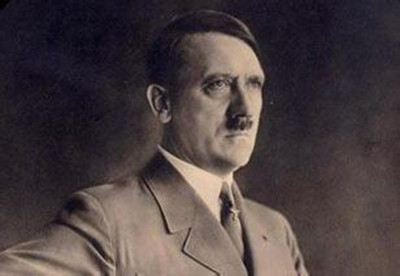Thousands of ex-soldiers formed paramilitary groups called Freikorps in order to fight the revolution.
數(shù)千名德國退伍軍人組成名為“自由軍團”的準軍事組織,旨在鎮(zhèn)壓革命。
And these Freikorps already held many of the ideas and beliefs that Hitler would later adopt as his own.
自由軍團所奉行的理念和信仰日后演變成希特勒的信條。
Many Freikorps were hugely anti-Semitic,believing in the fantasy that Jews were responsible both for Communism and Germany's defeat in the war.
多數(shù)成員是極端反猶太主義者,認為猶太人應為一戰(zhàn)中的共產(chǎn)主義和德國戰(zhàn)敗負全責。
And one of the most notorious Freikorps groups even adapted what they took to be a racist symbol, the Hakenkreuz...or Swastika.
而其中最臭名昭著的一個自由軍團甚至設計了種族主義的標志,納粹黨徽,即納粹萬字符。
Members of the Freikorps called their leaders Fuehrer.
自由軍團成員將領導人稱為元首。
And many of those who would later become infamous as Nazis joined Freikorps...
后來很多都成了惡名昭彰的納粹分子。
like Heinrich Himmler, who would become head of the SS,
如希姆萊,后成為黨衛(wèi)軍頭目。
Gregor Strasser, one of the most important early leaders in the Nazi party and Rudolf Hoess,the future commandant of Auschwitz.
格雷戈爾·史特拉斯,納粹早期重要領導人之一,以及魯?shù)婪颉ず账梗蟪蔀閵W斯維集中營指揮官。
But Hitler was not in a Freikorps.
但希特勒沒有參加自由軍團。
He was back in Munich.
他當時在慕尼黑。
Devastated by the loss of the war and desperate to stay in the army, he seemed lost and directionless.
因為德國戰(zhàn)敗而備受打擊,他不顧一切留在軍中,他心情低落,迷失了方向。












